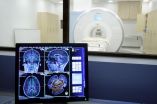(Press-News.org) Adults typically believe that life gets better — today is better than yesterday was and tomorrow will be even better than today. A new study shows that even depressed individuals believe in a brighter future, but this optimistic belief may not lead to better outcomes. The findings are published in Clinical Psychological Science, a journal of the Association for Psychological Science.
The research shows that middle-aged adults who had a history of depression tended to evaluate their past and current lives in more negative terms than did adults without depression, but this negativity didn't extend to their beliefs about the future:
"It turns out that even clinically depressed individuals are also characterized by the belief that one's life in the future will be more satisfying than one's past and current life," explains psychological scientist and lead researcher Michael Busseri of Brock University in Canada. "And this pattern of beliefs appears to be a risk factor for future depression, even over a 10-year period."
Busseri and co-author Emily Peck of Acadia University, also in Canada, analyzed data available from the Midlife Development in the United States (MIDUS) survey, a nationally representative sample of middle-aged Americans. The researchers looked at data from both waves of the study, collected 10 years apart, and they limited their sample to those participants who were 45 years old or younger at the first wave.
In addition to demographic data, the researchers looked at participants' reports of life satisfaction (rated from 0 to 10, from worst life possible to best life possible) for the past, present, and future, and they also examined symptoms of depression measured via clinical interview.
Compared to non-depressed participants, MIDUS participants who showed signs of depression reported lower levels of life satisfaction at each time point: past, present, and future. Like non-depressed participants, however, the depressed participants seemed to think that life would get better over time.
And yet, the discrepancy between optimistic beliefs about the future and a more sober reality might contribute to sub-optimal outcomes for these individuals.
"What we don't know yet is whether this improved future life is actually something that depressed individuals feel they will achieve," Busseri explains. "It's possible, for example, that envisioning a brighter future is a form of wishful thinking — rather than a sign of encouragement and hope."
Looking at the participants' subjective trajectories across all three time points, the researchers found that non-depressed participants showed linear increases in life satisfaction from one point to the next, but depressed participants did not. Instead, they tended to show a relatively flat trajectory between past and current life satisfaction and then a significant increase between current and future life satisfaction.
Busseri and Peck also found that relatively low ratings of past and current life satisfaction were each associated with a higher risk of depression 10 years later, even after taking various demographic characteristics and baseline levels of depression into account.
Taken together, these findings suggest that subjective trajectories may be an important point of intervention for people suffering from or at risk of depression.
"The fact that even depressed individuals can envision their lives being more satisfying in the future may provide clinicians and mental health workers with a valuable new avenue for intervention, for example, through focusing on helping individuals develop concrete goals and realistic plans for achieving a more satisfying future life," says Busseri. "An important next step is determine whether modifying individuals' subjective trajectories — making them more realistic, or 'flatter' — might attenuate symptoms of depression, or longer-term risk of depression."
INFORMATION:
For more information about this study, please contact: Michael A. Busseri at busseri@brocku.ca.
The article abstract is available online: http://cpx.sagepub.com/content/early/2014/10/13/2167702614547265.abstract
Clinical Psychological Science is APS's newest journal. For a copy of the article "Do (Even) Depressed Individuals Believe That Life Gets Better and Better? The Link Between Depression and Subjective Trajectories for Life Satisfaction" and access to other Clinical Psychological Science research findings, please contact Anna Mikulak at 202-293-9300 or amikulak@psychologicalscience.org.
TORONTO, Oct. 21, 2014--Controlling the Ebola virus outbreak at the source in West Africa is the most effective way to decrease international risk of transmission, according to a research paper published today in The Lancet.
If the epidemic persists and grows, it's likely there will be more cases of the deadly virus exported to other countries, including Canada, via air travel, said Dr. Kamran Khan, a physician and researcher at St. Michael's Hospital.
Dr. Khan, who examines global airline travel patterns to predict the spread of diseases, said that every month, three ...
VIDEO:
In this video, a Salk researcher explains how cancer evolves to become drug resistant.
Click here for more information.
LA JOLLA—Like a colony of bacteria or species of animals, cancer cells within a tumor must evolve to survive. A dose of chemotherapy may kill hundreds of thousands of cancer cells, for example, but a single cell with a unique mutation can survive and quickly generate a new batch of drug-resistant cells, making cancer hard to combat.
Now, scientists ...
PENSACOLA, Fla. – Ospreys do not carry significant amounts of human pharmaceutical chemicals, despite widespread occurrence of these chemicals in water, a recent U.S. Geological Survey (USGS) and Baylor University study finds. These research findings, published by Integrated Environmental Assessment and Management is the first published study that examines the bioaccumulation of pharmaceuticals in the water-fish-osprey food web.
Pharmaceuticals have been finding their way into the environment, primarily through wastewater, urban runoff and even biosolids applied ...
JACKSONVILLE, Fla. — After following breast cancer patients for an average of eight-plus years, researchers say that adding trastuzumab (Herceptin) to chemotherapy significantly improved the overall and disease-free survival of women with early stage HER2-positive breast cancer.
They found that the use of trastuzumab produced a 37 percent improvement in survival and a 40 percent reduction in risk of cancer occurrence, compared to patients treated with chemotherapy alone.
These findings, published in the Journal of Clinical Oncology, demonstrate how important ...
A new study, which may have implications for approaches to education, finds that brain mechanisms engaged when people allow their minds to rest and reflect on things they've learned before may boost later learning.
Scientists have already established that resting the mind, as in daydreaming, helps strengthen memories of events and retention of information. In a new twist, researchers at The University of Texas at Austin have shown that the right kind of mental rest, which strengthens and consolidates memories from recent learning tasks, helps boost future learning.
The ...
ANN ARBOR, Mich. — Scientists have restored the hearing of mice partly deafened by noise, using advanced tools to boost the production of a key protein in their ears.
By demonstrating the importance of the protein, called NT3, in maintaining communication between the ears and brain, these new findings pave the way for research in humans that could improve treatment of hearing loss caused by noise exposure and normal aging.
In a new paper in the online journal eLife, the team from the University of Michigan Medical School's Kresge Hearing Research Institute and ...
PHILADELPHIA – Blue light can both set the mood and set in motion important biological responses. Researchers at the University of Pennsylvania's School of Medicine and School of Arts and Sciences have teased apart the separate biological responses of the human eye to blue light, revealing an unexpected contest for control. Their work addresses the properties of melanopsin, a light-sensitive protein in the eye that establishes the rhythm of our day-night cycle and the familiar constriction of the pupil to bright light. They measured the pupil response to stimulation ...
WASHINGTON, DC – October 20, 2014 -- Lactobacillus species, commonly seen in yogurt cultures, correlate, in the guts of mouse models, with mitigation of lupus symptoms, while Lachnospiraceae, a type of Clostridia, correlate with worsening, according to research published ahead of print in Applied and Environmental Microbiology. "Our results suggest that the same investigation shold be performed in human subjects with lupus," says principal investigator Xin Luo of Virginia Tech, Blacksburg, VA.
In the study, the investigators first showed that mouse models of lupus ...
Tropical Storm Gonzalo strengthened into a hurricane on Oct. 14 when it was near Puerto Rico and provided a natural laboratory for the next phase of NASA's HS3 or Hurricane and Severe Storm Sentinel mission.
The WB-57 aircraft flew over Hurricane Gonzalo on Oct. 15 carrying two HS3 mission instruments called HIWRAP and HIRAD in addition to a new Office of Naval Research sponsored dropsonde system.
The WB-57 is a mid-wing, long-range aircraft capable of operation for extended periods of time from sea level to altitudes in excess of 60,000 feet. Two crew members are positioned ...
For treating patients with prescription opioid dependence in primary care, buprenorphine maintenance therapy is superior to detoxification, according to a new study by Yale School of Medicine researchers published in the Oct. 20 issue of JAMA Internal Medicine.
Prescription opioid dependence has been increasing for the last 15 years and now surpasses heroin dependence. Doctors are also writing more prescriptions for pain management, which has led to higher experimentation and addiction rates, according to lead author David Fiellin, M.D., professor of internal medicine ...






